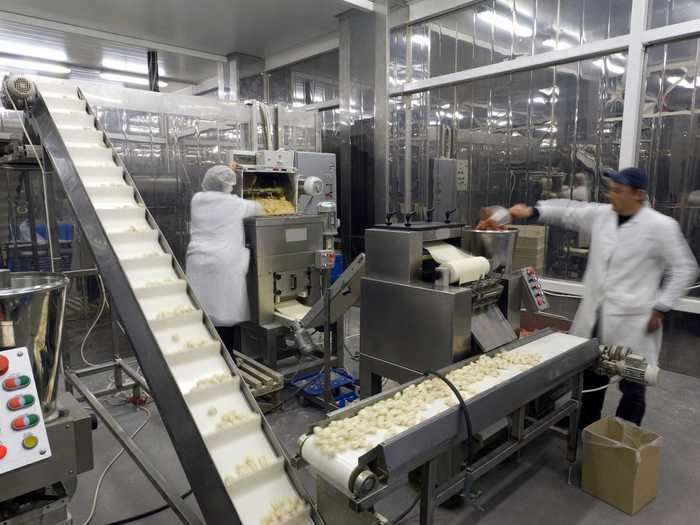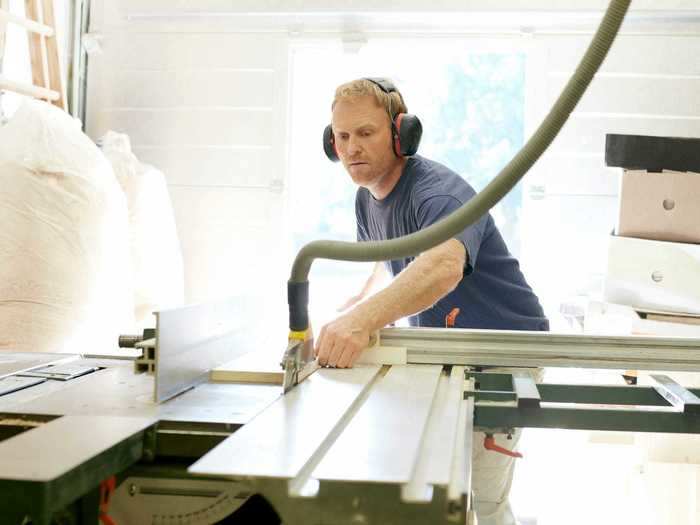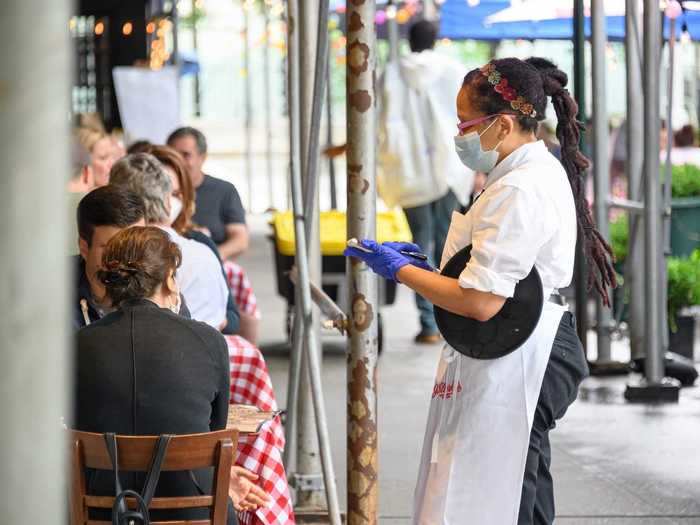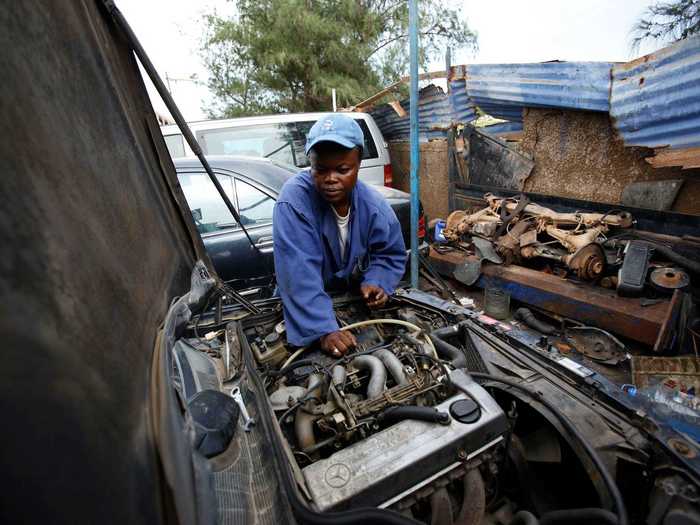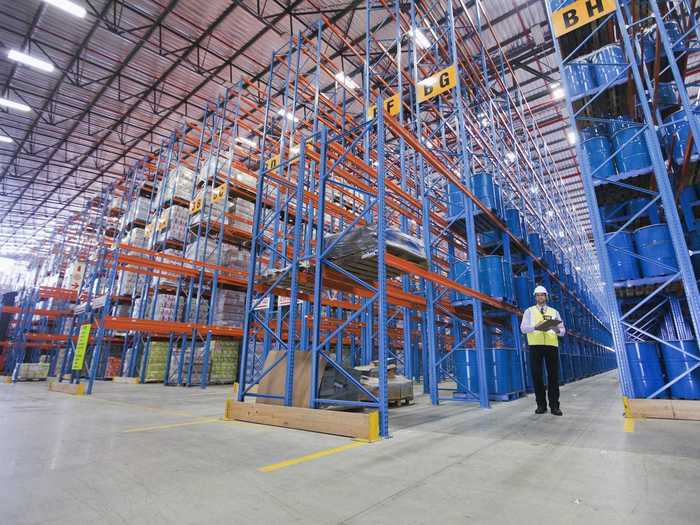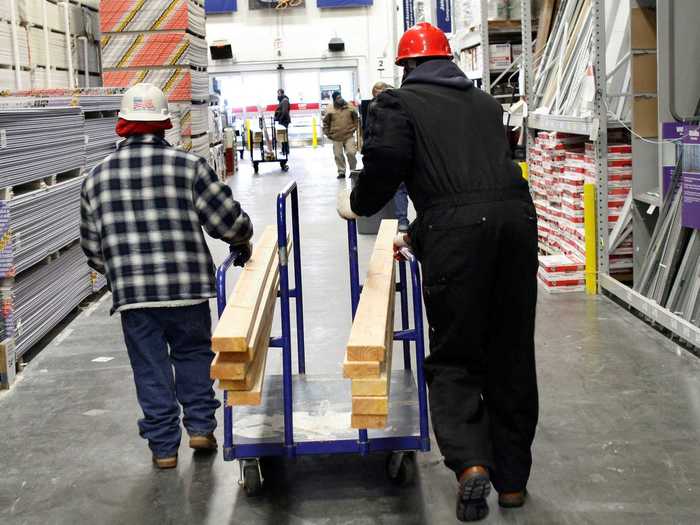Employment in retail subsectors have begun to recover from job losses in the spring.Paul Bersebach/MediaNews Group/Orange County Register/Getty Images
- Employment is not recovering from the coronavirus pandemic at the same pace across different industries.
- Some of the industries that were hit the hardest at the beginning of the pandemic, such as retail, have recovered most of their job losses in recent months.
- Business Insider applied the same method that the US Bureau of Labor Statistics used in a September analysis to find the share of recovery for detailed industries and subsectors.
- The following subsectors have recovered the highest share of jobs lost since the beginning of the pandemic, and eight of them have a higher number of employment gains since April than there were losses in March and April.
As the economy continues to rebound from its low point in the spring, data from the Bureau of Labor Statistics shows that some industries have recovered faster than others.
Friday's monthly employment situation release from the BLS shows that about 55% of the nearly 22.2 million jobs lost in March and April have come back by October.
But recovery has varied across industries, with many high-paying sectors seeing less of an employment decline than lower-wage jobs. We looked at the percent change in employment between February and October across detailed industries. Based on our findings, subsectors that typically pay less per hour have not come close to their pre-pandemic levels, while those that typically pay more per hour have seen little to no percent change. That is, some low-paying subsectors have been hit the hardest hit amid the pandemic.
The following chart highlights the percent change from February to October across different selected groups within industries from the Bureau of Labor Statistics along its vertical axis. We also included hourly wage data from the BLS as of May 2019 along the horizontal axis:
Subsectors in the financial services industry are close to their level of employment from February. On the other hand, performing arts and spectator sports is still 41.5% below employment in February, a slight improvement from the 46.1% decline as of September. Another notable increase was in the transit and ground passenger transportation subsector, which includes chartered buses and taxis. Employment in October was 25.5% below employment in February, five percentage points higher than the percent change from February to September.
Using job gains as a share of job losses to estimate recovery
BLS published an article in mid-September using data up until August, showing which major industry sectors have seen the most job recovery so far. Of the major industries BLS analyzed, retail trade has recovered the most, at 72.5% by August. That is, 72.5% of jobs lost between February and April have came back by August in this major industry.
Per Marketplace, economists from ZipRecruiter and Navy Federal Credit Union found leisure and hospitality, retail, construction, and manufacturing are all rebounding amid the pandemic recession.
Business Insider decided to take BLS' analysis a step further and look at job recovery for detailed industries. To do this, we used the same method, looking at the number of job gains between the low in April and the newly released October figures as a percent share of the jobs lost from February to April.
Eight of these detailed industries have actually had more jobs added between April to October than there were job losses between February to April. This is reflected in a greater than 100% recovery from the decline using our metric. For instance, employment in general merchandise stores have recovered by 149% because there have been 265,300 jobs added since April, compared to the 177,500 jobs lost between February and April.
Overall, industries are likely to recover at different rates. ThinkWhy released a report detailing when they expect various industries to recover to pre-pandemic levels, as well as which jobs will be looking to recruit this fall. Based on changes in employment from pre-pandemic levels, ThinkWhy believes industries like construction and financial activities will recover by 2022.
Jay Denton, senior vice president of business intelligence and chief innovation officer at ThinkWhy said until there is a vaccine, it will be hard for some other industries to recover, such as hotels.
"There is a whole set of business lines out there that until we get a vaccine and we can all return to something closer to normal, getting those types of jobs back are going to be difficult," Denton told Business Insider.
However, hiring was up in some industries last month. LinkedIn data shows that hiring is up by 15.5% from September to October, but last month's hiring is still below last year's levels. Indeed data similarly shows a slow increase in postings but still far below last year's figures.
And although some industries have recovered a portion of their jobs, many are still below pre-pandemic employment as noted in the chart above. The following are selected detailed subsectors that have recovered at least 60% of their declines based on preliminary data from the latest employment figures. We also included each sector's May 2019 hourly earnings from the Bureau of Labor Statistics.
26. Real estate: 60.4% of the decline has recovered by October.
Noel Hendrickson/Getty Images
Median hourly wage: $19.51
Employment decline from February to April: 111,500
Employment gain from April to October: 67,400
24 (tie). Food manufacturing: 63.9% of the decline has recovered by October.
IP Galanternik D.U./Getty Images
Median hourly wage: $15.91
Employment decline from February to April: 97,900
Employment gain from April to October: 62,600
24 (tie). Wood product manufacturing: 63.9% of the decline has recovered by October.
Arthur Dries/Getty Images
Median hourly wage: $16.47
Employment decline from February to April: 35,200
Employment gain from April to October: 22,500
23. Food services and drinking places: 65.5% of the decline has recovered by October.
Noam Galai/Getty Images
Median hourly wage: $11.48
Employment decline from February to April: 6,076,000
Employment gain from April to October: 3,977,700
22. Transportation equipment manufacturing: 66.0% of the decline has recovered by October.
Charles Mostoller/Reuters
Median hourly wage: $24.55
Employment decline from February to April: 401,100
Employment gain from April to October: 264,800
21. Miscellaneous store retailers: 67.7% of the decline has recovered by October.
Maranie Staab/Reuters
Median hourly wage: $12.53
Employment decline from February to April: 276,400
Employment gain from April to October: 187,200
20. Textile product mills: 67.8% of the decline has recovered by October.
Mark Webster/Getty Images
Median hourly wage: $15.26
Employment decline from February to April: 25,500
Employment gain from April to October: 17,300
19. Credit intermediation and related activities: 69.8% of the decline has recovered by October.
Bloom Productions/Getty Images
Median hourly wage: $23.28
Employment decline from February to April: 32,400
Employment gain from April to October: 22,600
18. Personal and laundry services: 70.8% of the decline has recovered by October.
shironosov/Getty Images
Median hourly wage: $13.26
Employment decline from February to April: 852,200
Employment gain from April to October: 603,500
17. Electronics and appliance stores: 72.3% of the decline has recovered by October.
Philip Pacheco/Getty Images
Median hourly wage: $15.53
Employment decline from February to April: 48,300
Employment gain from April to October: 34,900
16. Motor vehicle and parts dealers: 74.6% of the decline has recovered by October.
Joshua Lott/Reuters
Median hourly wage: $16.50
Employment decline from February to April: 377,300
Employment gain from April to October: 281,400
15. Miscellaneous manufacturing: 75.2% of the decline has recovered by October.
Monty Rakusen/Getty Images
Median hourly wage: $20.11
Employment decline from February to April: 97,700
Employment gain from April to October: 73,500
14. Plastics and rubber products manufacturing: 75.6% of the decline has recovered by October.
aydinmutlu/Getty Images
Median hourly wage: $18.03
Employment decline from February to April: 73,100
Employment gain from April to October: 55,300
13. Specialty trade contractors: 76.1% of the decline has recovered by October.
simonkr/Getty Images
Median hourly wage: $22.99
Employment decline from February to April: 744,100
Employment gain from April to October: 566,000
12. Repair and maintenance: 80.1% of the decline has recovered by October.
Rebecca Blackwell/AP
Median hourly wage: $18.28
Employment decline from February to April: 244,400
Employment gain from April to October: 195,800
11. Construction of buildings: 80.8% of the decline has recovered by October.
Construction workers build a new Centex home on Tuesday, June 23, 2020, in Houston.
David J. Phillip/AP
Median hourly wage: $25.13
Employment decline from February to April: 232,400
Employment gain from April to October: 187,800
10. Furniture and home furnishings stores: 80.9% of the decline has recovered by October.
Oscar Wong/Getty Images
Median hourly wage: $14.58
Employment decline from February to April: 217,100
Employment gain from April to October: 175,700
9. Ambulatory health care services: 81.6% of the decline has recovered by October.
SCIENCE PHOTO LIBRARY/Getty Images
Median hourly wage: $20.88
Employment decline from February to April: 1,333,200
Employment gain from April to October: 1,087,500
8. Nonstore retailers: 121.3% of the decline has recovered by October.
PeopleImages/Getty Images
Median hourly wage: $18.14
Employment decline from February to April: 44,500
Employment gain from April to October: 54,000
7. General merchandise stores: 149.5% of the decline has recovered by October.
Mario Anzuoni/Reuters
Median hourly wage: $12.17
Employment decline from February to April: 177,500
Employment gain from April to October: 265,300
6. Warehousing and storage: 169.8% of the decline has recovered by October.
Hybrid Images/Getty Images
Median hourly wage: $17.39
Employment decline from February to April: 86,400
Employment gain from April to October: 146,700
5. Food and beverage stores: 230.4% of the decline has recovered by October.
A cashier works at the Cardenas Markets grocery store as a for hire sign is seen on High Street in Oakland, Calif., on Wednesday, May 27, 2020.
Jane Tyska/Digital First Media/East Bay Times via Getty Images
Median hourly wage: $12.34
Employment decline from February to April: 42,400
Employment gain from April to October: 97,700
4. Insurance carriers and related activities: 275.3% of the decline has recovered by October.
Jose Luis Pelaez Inc/Getty Images
Median hourly wage: $27.16
Employment decline from February to April: 9,300
Employment gain from April to October: 25,600
3. Oil and gas extraction: 291.7% of the decline has recovered by October.
The sun sets behind a crude oil pump jack on a drill pad in the Permian Basin in Loving County
Reuters
Median hourly wage: $37.67
Employment decline from February to April: 1,200
Employment gain from April to October: 3,500
2. Building material and garden equipment and supplies dealers: 365.9% of the decline has recovered by October.
Shannon Stapleton/Reuters
Median hourly wage: $14.34
Employment decline from February to April: 35,200
Employment gain from April to October: 128,800
1. Securities, commodity contracts, and other financial investments and related activities: 400.0% of the decline has recovered by October.
Kerkez/Getty Images
Median hourly wage: $39.85
Employment decline from February to April: 2,200
Employment gain from April to October: 8,800


